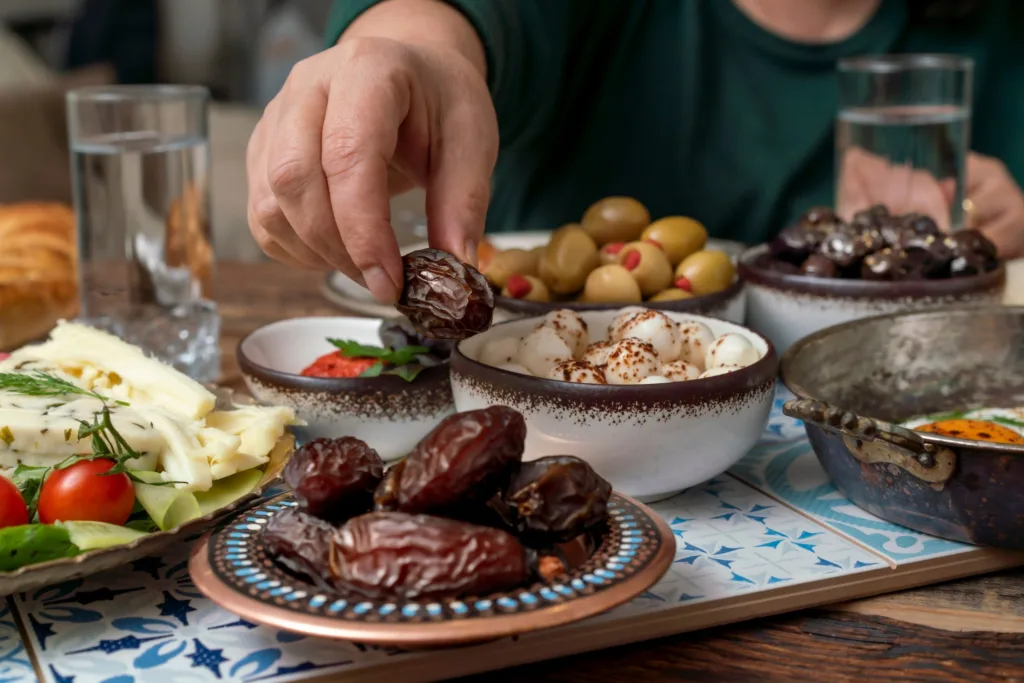
Ramadan, a month of spiritual reflection and fasting observed by Muslims worldwide, holds significant cultural and communal importance in Malaysia. As the holy month approaches, individuals, regardless of faith, eagerly anticipate the vibrant atmosphere of bazaars and the cherished tradition of breaking fast together.
Yet, behind the cultural festivities lies a deeper understanding of fasting’s physiological and practical aspects, particularly crucial for first-time fasters.
Understanding The Physiology Of Fasting

Nur Adila Samingan, a Dietitian at IMU Nutrition and Dietetics Department, elucidates the physiological intricacies of fasting. She explains that fasting prompts the body to utilize stored energy, first tapping into glycogen reserves before metabolizing protein and fats. This process triggers the production of human growth hormone, mitigating muscle loss, and reducing oxidative stress, fostering a healthier lifespan.
Overcoming Challenges: Fasting With Purpose
While fasting embodies a spiritual commitment, its practical challenges can be daunting, especially for novices and young practitioners. Nur Adila emphasizes gradual adaptation and offers guidance for managing health concerns during fasting, including exemptions for menstruating, pregnant, or chronically ill individuals. Consulting healthcare professionals, particularly for conditions like diabetes and gastritis, ensures a safe fasting experience.
Supporting First-Time Fasters

Image via Unair News
Parents play a pivotal role in facilitating their children’s transition into fasting, gradually introducing fasting rituals before they reach puberty. Nur Adila advises parents to celebrate their children’s milestones, fostering motivation and resilience.
To help prepare them for the future when they are obligated to fast fully, parents can encourage their children to fast for half a day, or to fast from food while permitting water.
Nur Adila Samingan, Dietitian at IMU Nutrition and Dietetics Department
For new converts, fasting signifies more than abstaining from food; it’s a journey of self-discipline and spiritual growth, extended through fasting practices in the months preceding Ramadan.
Dietary Strategies For Success

Image via Burjeel Hospital
Managing food intake during Ramadan is paramount for sustaining energy levels throughout the day. Nur Adila offers dietary recommendations for sahur (pre-dawn meal) and iftar (evening meal), emphasizing high-fibre, protein-rich foods to prolong satiety and hydration. Minimizing caffeine, sodium, and sugary foods ensures stable energy levels and optimal hydration.
As the day ends and it’s time to break the fast, Nur Adila advises starting with simple, easily digestible foods like dates and light desserts to ease the digestive system. Opting for hydration-rich options such as fruits and porridge replenishes fluids and nutrients, promoting overall well-being.
Embracing The Fasting Journey
As Ramadan approaches, first-time fasters embark on a transformative journey of spiritual reflection and self-discipline. By understanding the physiological effects of fasting, overcoming practical challenges, and embracing dietary strategies, individuals can enhance their fasting experience. Nur Adila advocates for a holistic approach to fasting, nurturing both body and spirit, and fostering a deeper connection with the essence of Ramadan.










